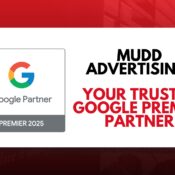/
/
The Basics of SEO
Tired or afraid of getting little to no results from your time and money spent on SEO for your small business? Despite what most "SEO experts" want you to believe, the fundamentals of SEO are easy to understand, simple to execute, and (most of the time) require little or no specialized knowledge, even if you're a beginner. In this guide, I expose a simple checklist of the three fundamental principles of SEO and show you where to direct your time and money to get better results in less time.

 You can think of a search engine like a librarian. Let's say that I ask a librarian, "I'd like to know how to build a birdfeeder." The librarian extracts meaning from my words and understands that I'm interested in a resource that will provide instructions for building a birdfeeder.
The librarian might also extract information from sources other than my words. For example, the librarian might extract information from my clothes and hands and estimate the probability that I'm looking for a resource for the inexperienced woodworker.
The librarian might also extract information from my location. I live in Iowa. So, I'm likely looking for a birdfeeder for birds found in Iowa.
Search engines extract meaning from users in much the same way. For a user searching for "restaurants", Google will take meaning not only from the user's "question" but also from elements like the user's location. "There's a high probability that he wants restaurants near his location."
But it's not enough to understand what a user is looking for. The search engine also has to extract meaning from web resources it's found. The search engine can extract meaning from a resource by analyzing:
You can think of a search engine like a librarian. Let's say that I ask a librarian, "I'd like to know how to build a birdfeeder." The librarian extracts meaning from my words and understands that I'm interested in a resource that will provide instructions for building a birdfeeder.
The librarian might also extract information from sources other than my words. For example, the librarian might extract information from my clothes and hands and estimate the probability that I'm looking for a resource for the inexperienced woodworker.
The librarian might also extract information from my location. I live in Iowa. So, I'm likely looking for a birdfeeder for birds found in Iowa.
Search engines extract meaning from users in much the same way. For a user searching for "restaurants", Google will take meaning not only from the user's "question" but also from elements like the user's location. "There's a high probability that he wants restaurants near his location."
But it's not enough to understand what a user is looking for. The search engine also has to extract meaning from web resources it's found. The search engine can extract meaning from a resource by analyzing:
The Three Principles of SEO
Search Engine Optimization really boils down to three fundamental components:- Crawlability
- Meaning
- Importance

Crawlability
Crawlability is the first and most fundamental component of SEO. As I define it, "crawlability" means "possessing the characteristics necessary for a web crawler to find and extract information." In practical terms, in order for search engines to do anything with the stuff you put out there on the Web, they to need to be able both to find the web resources you've created such as web pages, images, videos, audio files, etc., and extract the information they contain. The bread and butter of crawlability is:- Web server
- HTML
- Links
Meaning
The value of a search engine lies in its ability to match resources to what a user wants. At the most abstract level, search engines are extracting meaning from the user and comparing that meaning to the meaning found in resources. You can think of a search engine like a librarian. Let's say that I ask a librarian, "I'd like to know how to build a birdfeeder." The librarian extracts meaning from my words and understands that I'm interested in a resource that will provide instructions for building a birdfeeder.
The librarian might also extract information from sources other than my words. For example, the librarian might extract information from my clothes and hands and estimate the probability that I'm looking for a resource for the inexperienced woodworker.
The librarian might also extract information from my location. I live in Iowa. So, I'm likely looking for a birdfeeder for birds found in Iowa.
Search engines extract meaning from users in much the same way. For a user searching for "restaurants", Google will take meaning not only from the user's "question" but also from elements like the user's location. "There's a high probability that he wants restaurants near his location."
But it's not enough to understand what a user is looking for. The search engine also has to extract meaning from web resources it's found. The search engine can extract meaning from a resource by analyzing:
You can think of a search engine like a librarian. Let's say that I ask a librarian, "I'd like to know how to build a birdfeeder." The librarian extracts meaning from my words and understands that I'm interested in a resource that will provide instructions for building a birdfeeder.
The librarian might also extract information from sources other than my words. For example, the librarian might extract information from my clothes and hands and estimate the probability that I'm looking for a resource for the inexperienced woodworker.
The librarian might also extract information from my location. I live in Iowa. So, I'm likely looking for a birdfeeder for birds found in Iowa.
Search engines extract meaning from users in much the same way. For a user searching for "restaurants", Google will take meaning not only from the user's "question" but also from elements like the user's location. "There's a high probability that he wants restaurants near his location."
But it's not enough to understand what a user is looking for. The search engine also has to extract meaning from web resources it's found. The search engine can extract meaning from a resource by analyzing:
- content
- structural elements such as:
- title tag
- meta description
- headings
- HTML5 semantic markup (e.g. <article>)
- sturctured markup (e.g. schema.org)
- links
- anchor text
- surrounding text
- etc.
Importance
Back in 1997 before Google was created, only the first two components (crawlability and meaning) mattered for SEO. However, as the creators of Google noted, "'Junk results' often wash out any results that a user is interested in." Those were the days of keyword stuffing. If you wanted to rank higher for a given keyword than the highest ranked web page, you simply had to increase the meaning/relevance factor of your page by increasing the number of times your keyword appeared on your page. The creators of Google attempted to solve this problem by taking advantage of the link structure of the Web to produce a global importance ranking of every web page. The algorithm they developed, PageRank, gave each page an importance score (i.e. a PageRank value) based on:- the number of links pointing to the page
- the importance (i.e. PageRank) of the other pages that linked to the page
- the number of outgoing links on those other pages
Where to Focus Your SEO Activities
To get results from SEO, you'll know you're spending your time well if you're focusing your efforts on elements that will have the greatest impact on the three fundamental components: crawlability, meaning, and importance.How to Improve Crawlability
Your primary focus for crawlability should be:- Put your stuff online
- Use HTML
- Link to your content
How to Influence Meaning
To understand the words and phrases that people are using to search for the topics of your content, use the Google Keyword Planner. Apply what you learn from your keyword research and analysis to the language you use in your content. And, of course, create lots of awesome content. More content exposes your site to a greater number of search queries for which you'll have the potential to rank. And more search queries and rankings means more traffic to your site.How to Increase Importance
Links. And if you're a local business, then local business citations, too. Basically, get your name out there. Publish something provocative or polemic. Create something innovative or revolutionary. Publish content elsewhere. Get interviewed. Interview other people. Make friends. Make connections. Build relationships. Do something extraordinary, newsworthy or remarkable in some way. Other factors that can increase importance include things like the load time of your pages. A slow loading page may be negatively impacted in search results. Don't worry too much about the little details of SEO. "But what about the robots meta tag? Or rel='nofollow'? Or..." Your time would be much better spent creating new content and building links to your site. Focus on these three fundamental areas of SEO and you can expect to see a significantly greater return on your investment of time and money.Recent Posts
All Categories
Tags
aia ads
automotive
ctv
digital marketing
direct mail
direct marketing
display
display ads
dynamic inventory display
email
email marketing
EV marketing
facebook
gbp
google analytics
google my business
google my business inventory
google shopping ads
internet marketing
local seo
MUDDid
mudd id
online marketing
pay per click
performance max
pmax
pop
ppc
radio
retargeting
search engine marketing
search engine optimization
sem
seo
social
social media
social media marketing
traditional marketing
traditional media
ux management
vehicle listing ads
video advertising
video production
vla
web ux




